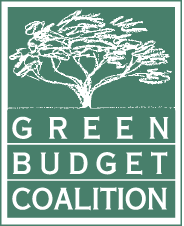Canada’s new 2030 Nature Strategy includes a commitment to “identify by 2025, and eliminate, phase out or reform incentives, including subsidies, harmful for biodiversity, in a proportionate, just, fair, effective and equitable way, while substantially and progressively reducing them… by 2030…”. This commitment, consistent with Target 18 of the Kunming-Montreal Global Biodiversity Framework, offers a tremendous opportunity to catalyze a nature- positive economy in Canada.
Current spending on practices that degrade nature far exceeds spending on practices that can conserve and restore it. Action is urgently needed to identify environmentally harmful subsidies (EHS)
in Canada and to pursue innovations in federal subsidy and tax reform, budgeting and policymaking to improve coherence between economic and environmental policies, and reorient the flow of public capital to catalyze new nature-positive economic opportunities.
The Green Budget Coalition welcomes and supports the government’s commitment to compile an inventory of incentives that may have an impact on biodiversity by mid-2025, and, by 2030, to develop and implement a plan that substantially reduces the value of incentives and subsidies with harmful impacts on biodiversity.
Recommendation:
The 2025 federal budget should explicitly commit to develop a systematic, cross- departmental implementation plan in 2025, and to eliminate, phase out or reform at least $10 billion in harmful subsidies by 2030 (Canada’s share, by percentage of global GDP, of the GBF commitment to reduce subsidies by $500 billion). (Target 18). [FIN, ECCC, DFO, AAFC, NRCan]

